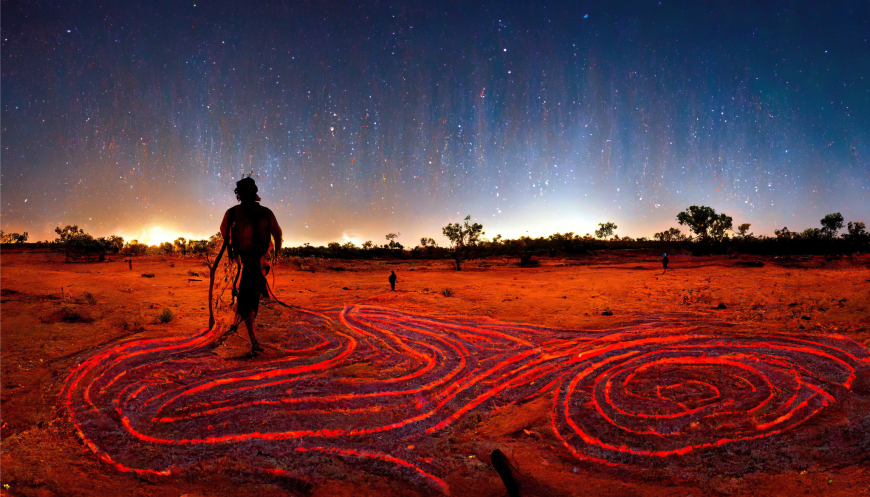The referendum is Australia’s gateway moment

This opinion piece by Aboriginal and Torres Strait Islander Social Justice Commissioner, June Oscar AO, appeared in The Guardian Australia on Tuesday 26 September 2023
I am a Bunuba woman, who has lived the majority of my life on my Country in the central Kimberley with my extended family. I’ve been immersed within and at the coalface of grassroots issues and community-led movements.
I’ve brought this lived experience to my role as the first woman to hold the position of Aboriginal and Torres Strait Islander Social Justice Commissioner. I do not belong to a mythical Indigenous elite—a regurgitated colonial narrative to entrench false divisions—none of my fellow campaigners do either, because it doesn’t exist. The places that grew us up are our communities, families and Country.
I’ve worked with my Elders, my people and with governments at all levels, dedicating decades to regional development, including native title, establishing remote communities, implementing employment and women’s safety programs, protecting and maintaining our languages, law and cultures, and setting up a cross-cultural school on Country. From education to my work on local government and in the pastoral industry, I’ve been at the interface of uniting Indigenous and non-Indigenous people, so we can live, learn and work together.
In the moments when national policy has upheld our agency and rights, and supported this way of working, we have begun to overcome the injustices of marginalisation.
But I’ve also witnessed and fought against governments, who, without mechanisms to be accountable to our peoples, can so easily dismantle the policies enabling our self-determination.
The decades over which governments have not properly listened to our solutions, I’ve experienced first-hand how ill-informed policy results in neglected housing, employment drying up, and remote community schools stripped of funding.
Too many of our people lose hope in these situations, where they feel trapped in circumstances out of their control. It’s painful. I believe all Australians are capable of understanding what it feels like to be in seemingly inescapable pain.
This is what we’ve got to change for our peoples, and that change relies on all Australians.
I keep imagining a moment 20 years from now, where my great granddaughter, who’s currently 17 months old, wakes as a 21-year-old to a different world. I see her as a confident woman on the threshold of adulthood. She’s been taught her language and the interconnections of the plants and animals that surround her, by me and her other old people, while attending an excellent school and university, if she so chooses. She is so happy, adventurous, and hopeful, seizing the opportunities of life.
She will grow-up in an Australia that recognises and embraces her—our—remarkable living Aboriginal and Torres Strait Islander heritages and cultures, as our nation’s pride and joy.
She will come of age in an Australia that listens deeply to our peoples’ expertise; voices from the ground, across the regions, and at the national level. I will watch her learn and mature as the Australian Parliament and the executive government design policies and legislation alongside First Nations peoples, informed by our lived experiences and knowledges.
I want to see how different the world can feel for her, for all our young people, when systems are responsive to our needs, and do not exclude our voices—because right now they do.
I want to know that my great granddaughter won’t have the struggles our family and communities face today. I want to know that she will be free of them—free from a system that perpetuates cycles of discrimination, poverty and trauma.
The worsening statistics of life outcomes shows starkly the impact of this current system. Everyday, I see behind the numbers—the real people, the real conditions.
October 14 is Australia’s gateway moment. It’s about saying yes to shift the trajectory toward the vision I have for my great granddaughter and all our future generations.
It won’t be a silver bullet, and we wouldn’t want it to be. The Constitution should never fix detail, as our predicaments and dreams will inevitably change with time. That is why we are voting for the principle of permanent representation. When the Voice needs to change over generations, because context always shifts, we can do that without fear of abolishment.
After a successful referendum, in true democratic form, our communities across Australia will shape the Voice together, designing a structure that will effectively elevate the grassroots. ‘Yes’ presents us with the opportunity to develop structures necessary for robust dialogues, responsive to our voices in all their diversity, and the multiple pathways forward to justice, self-determination and unity. ‘No’ shuts this down.
We’ve been advocating for a permanent representative body for decades. My old people wanted this. My family in remote Australia facing unbelievable struggles daily want this.
I want this. I want this for my great granddaughter, so when I am no longer here and she is all grown-up, she will be safe and powerful in her sense of self and her collective identity. I want her to hold and speak the vibrant knowledges of our Bunuba ancestors, and not to have to carry this fight for recognition.
I want this for all Australians—Indigenous and non-Indigenous—to unite in the spirit of inclusion so our national birth certificate can reflect who we are, and together, forever, we can honour the remarkable shared heritage of the continent that is home to us all.
History is calling, and I know Australians can make history happen.
